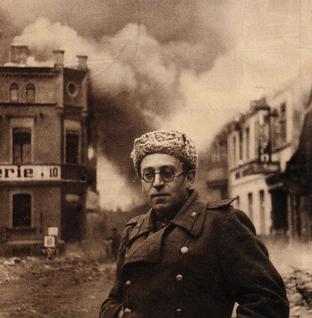A Quote by Simone Weil
The difference between more or less intelligent men is like the difference between criminals condemned to life imprisonment in smaller or larger cells. The intelligent man who is proud of his intelligence is like a condemned man who is proud of his large cell.
Related Quotes
My friends, I tell you repeatedly that the illusion that Life creates is very, very intelligent. The illusion itself is intelligent! Just understand how intelligent the intelligence must be in order to create an intelligent illusion. The intelligent illusion is so intelligent it will appear real to man every moment of his daily life!
The difference between ignorant and educated people is that the latter know more facts. But that has nothing to do with whether they are stupid or intelligent. The difference between stupid and intelligent people-and this is true whether or not they are well-educated-is that intelligent people can handle subtlety. They are not baffled by ambiguous or even contradictory situations-in fact, they expect them and are apt to become suspicious when things seem overly straightforward.
The difference between a simpleton and an intelligent man, according to the man who is convinced that he is of the latter category, is that the former wholeheartedly accepts all things that he sees and hears while the latter never admits anything except after a most searching scrutiny. He imagines his intelligence to be a sieve of closely woven mesh through which nothing but the finest can pass.
Mothers know the difference between a broth and a consommé. And the difference between damask and chintz. And the difference between vinyl and Naugahyde. And the difference between a house and a home. And the difference between a romantic and a stalker. And the difference between a rock and a hard place.
In comparing these two writers, he [Samuel Johnson] used this expression: "that there was as great a difference between them as between a man who knew how a watch was made, and a man who could tell the hour by looking on the dial-plate." This was a short and a figurative statement of his distinction between drawing characters of nature and characters only of manners, but I cannot help being of opinion, that the neat watches of Fielding are as well constructed as the large clocks of Richardson, and that his dial plates are brighter.







































